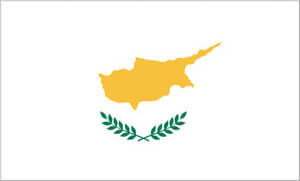Cyprus, a sun-drenched isle nestled in the eastern Mediterranean, finds itself uniquely positioned at the crossroads of three continents: Europe, Asia, and Africa. Despite its geographical significance, it is the linguistic landscape that offers profound insights into the island’s cultural and historical tapestry. Thus, understanding the languages spoken in Cyprus transcends mere linguistics; it reflects the complexities of identity and heritage.
At first glance, the linguistic identity of Cyprus might seem straightforward, predominantly comprising Greek and Turkish. However, this duality masks a richer narrative entangled in centuries of history, conflict, and convergence. The Greek Cypriots, who predominantly occupy the southern part of the island, primarily communicate in Greek—a language steeped in ancient tradition, philosophy, and a distinctive ecclesiastical identity. Conversely, Turkish serves as the lingua franca for the Turkish Cypriots residing mainly in the northern region. This bifurcation is not simply administrative; it highlights the profound social, cultural, and political rifts that characterize this divided island.
To delve deeper, one must consider the historical context. The modern language dynamics of Cyprus are deeply rooted in the island’s tumultuous history. The influence of the Byzantine Empire laid a strong foundation for the Greek language, while subsequent Ottoman rule introduced Turkish as a prevalent language. This historical layering fostered a milieu wherein both languages not only flourished but also affected each other to some degree. Such interactions between Greek and Turkish enrich the vernacular with a variety of idiomatic expressions and shared cultural references, despite the prevailing divides.
In addition to these dominant languages, Cyprus is home to a plethora of dialects and minority languages that further embellish its linguistic spectrum. The presence of the Maronite community, a Christian minority with roots tracing back to Lebanon, introduces a distinct dialect of Arabic. Similarly, the Armenians and Latins contribute their linguistic heritages, embedding their languages within the cultural fabric of the island. This linguistic kaleidoscope invites reflection on unity amidst diversity, resonating with a Christian ethos that celebrates the multitude of voices in the community.
The linguistic division of Cyprus is emblematic of deeper societal rifts, yet it also reflects a profound potential for reconciliation. The challenges arising from a divided language sphere invite one to consider how communication can bridge disparate cultures. Christianity, with its underpinnings of love and forgiveness, offers a framework for overcoming these barriers. Dialogues fostered through a shared faith can pave the way toward a more harmonious coexistence.
As we ponder the linguistic identity of Cyprus, one must not overlook its implications for Christian outreach and community building. The church stands as a pivotal institution, capable of transcending language through the shared values of faith and compassion. Initiatives aimed at fostering interaction between Greek and Turkish speakers demonstrate the power of language in creating connections. Such efforts echo the Biblical principle of unity, which asserts that diversity can be a source of strength rather than division. Just as the early church embraced individuals from myriad backgrounds, so too can Cypriots work toward a cohesive identity that respects and appreciates linguistic diversity.
Moreover, the role of education in shaping language perceptions cannot be overstated. Language is not merely a tool of communication; it serves as a vessel for cultural identity and continuity. In Cyprus, educational institutions can cultivate an environment where both Greek and Turkish languages are appreciated and taught. This dual-language educational approach not only fosters bilingualism but also instills a sense of mutual respect. Such initiatives resonate with Christian teachings that emphasize the importance of nurturing understanding and empathy among all peoples.
The influence of language extends beyond the classroom and into the realm of literature, art, and worship. The works of Cypriot poets and authors often intertwine the Greek and Turkish languages, weaving a narrative of shared human experience. These literary expressions carry the weight of cultural memory and simultaneously serve as a bridge—enabling individuals from diverse backgrounds to connect through shared themes of love, hope, and unity.
In the realm of worship, the use of both Greek and Turkish in church services illustrates a tangible expression of inclusivity. Such practices encourage congregants to partake in a communal experience that transcends linguistic boundaries, inviting an appreciation for the richness found in diversity. It is in these sacred spaces where the blending of languages reflects the essential Christian truth: that all are created in the image of God, deserving of love and respect irrespective of the language they speak.
Looking ahead, the future of Cyprus’s linguistic identity harbors the promise of evolution and reconciliation. While the past may be marked by division, a collective aspiration for peace and cooperation can redefine the narrative. The exploration of language as a cultural and spiritual asset holds the potential for fostering community and healing longstanding wounds. The Christian community, guided by principles of mercy and grace, stands poised to lead this transformation by promoting dialogue, education, and cross-cultural interactions.
In conclusion, the languages of Cyprus are a testament to the island’s rich and intricate history. Beyond the spoken word lies an invitation to embrace the complexities of identity while aspiring toward unity. As we seek to navigate these waters, may the promise of language—as a tool for connection and understanding—transform the divided narratives of the past into a future that resonates with harmony and grace, embodying the very essence of the Christian faith.



